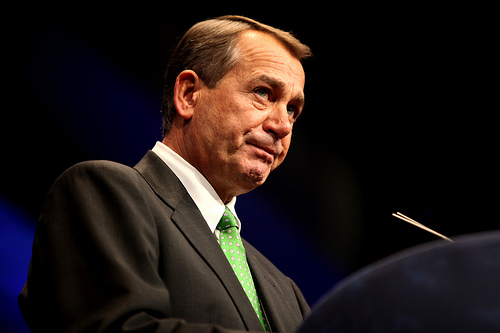
Finally, some good news for the wind industry.
You have probably heard by now that Congress has voted through a bill that will avert the absurdly named “fiscal cliff.” I’ll leave it to other blogs to get into the details. (Suzy Khimm has a nice rundown.) I’ll also leave it to others to lament the absurd way in which this country is governed. I just want to focus on one bright spot that hasn’t gotten much coverage.
Part of the bill was a one-year extension of several stimulus tax credits. Among them was the production tax credit (PTC) that is so crucial to the wind industry and for which it has been fighting over the past year.
One-year extensions are, admittedly, an absurd way to run energy policy. And yes, there are many ways the PTC could be improved — most notably by transforming it into a system of cash grants. Yes, this fight will reoccur and we’ll probably end up with something like the five-year phaseout of the PTC proposed by the (rather hapless) American Wind Energy Association.
Nonetheless, there’s more here than meets the eye. To see why, we have to back up a bit.
In August, the Senate Finance Committee passed a tax-extenders bill that would extend some temporary tax credits and phase out others. That bill called for extending the PTC, but also altering it in a crucial way, in response to lobbying from wind companies.
Traditionally, PTC money is available to a wind project only once it is up and running, putting electricity on the wires. That’s why so many wind projects raced to finish in 2012, when it looked like the PTC would expire. The Finance Committee bill changed the PTC so that the money would be available to any wind project that breaks ground in the calendar year. That allows projects to be built (and financed) over longer periods of time without worrying about losing the tax incentive. I’ve heard informal estimates that one year of this kind of PTC is worth two or three years of the conventional PTC.
And it’s the Finance Committee’s version that ended up in the Senate compromise bill the House grudgingly passed last night. So that’s the PTC in effect for 2013.
This means wind developers can lock in PTC money if they break ground in 2013, but it’s highly uncertain whether that money will be available in 2014. That adds up to a huge incentive to start projects this year.
So, whatever the long-term fate of energy policy generally or the wind industry specifically, 2013 is shaping up to be a boom year for wind in the U.S.



